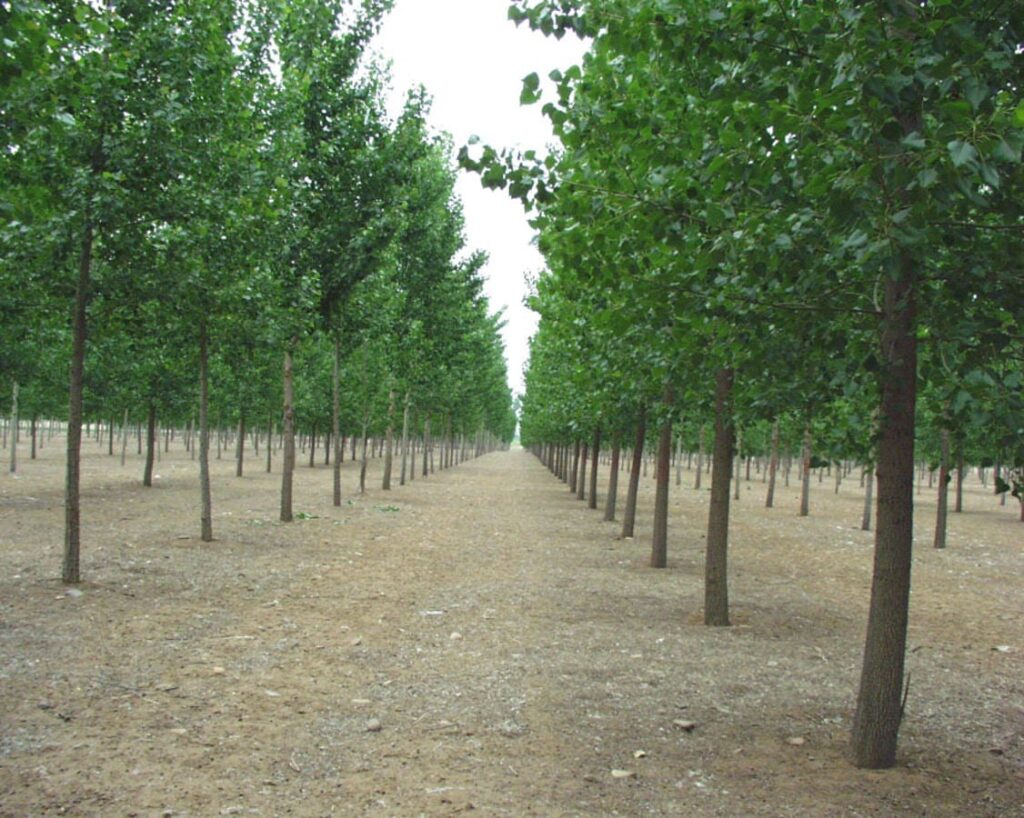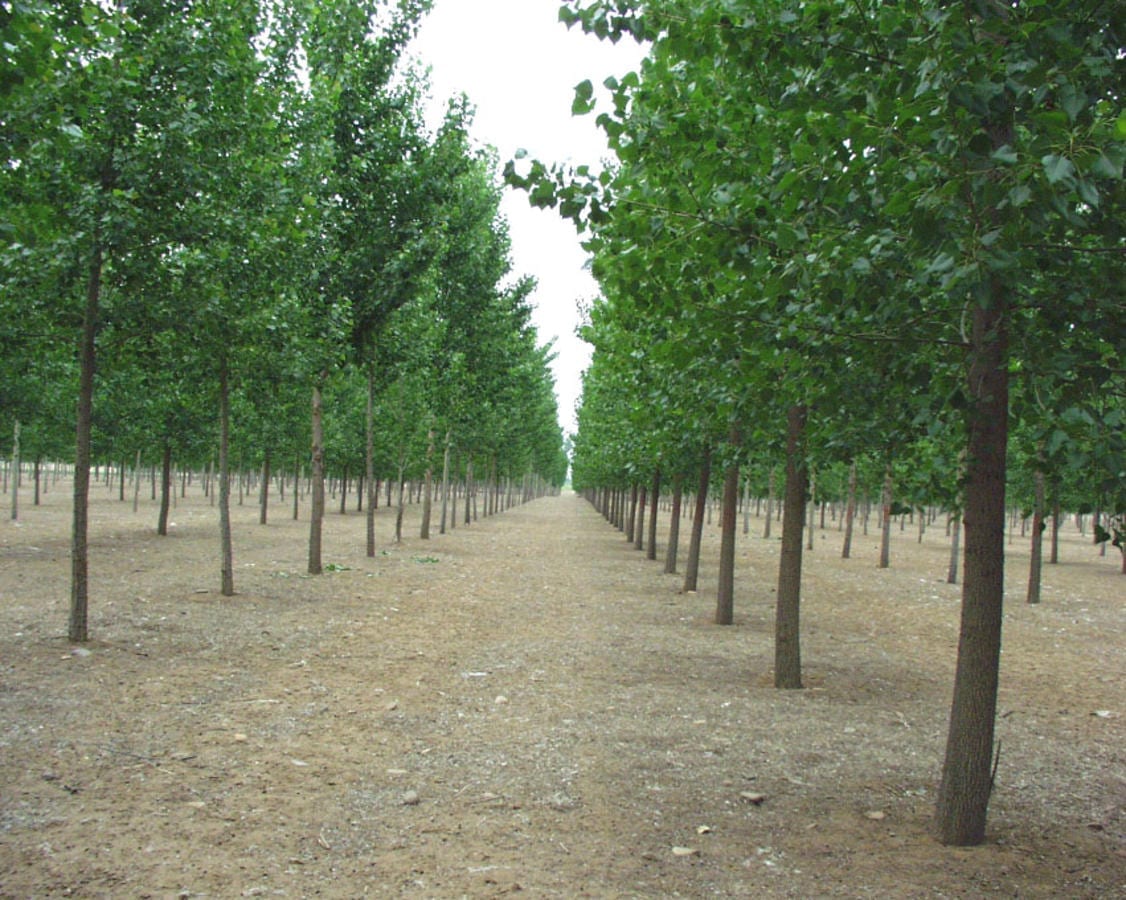
The race to meet carbon-neutral biofuel targets could put human health and food crop production at risk unless it is carefully planned, according to new research.
A new study, led by Professor Nick Hewitt of Lancaster University, examined changes in ground level ozone in response to projected land use change associated with future biofuel cultivation.
Publishing in the journal Environmental Science & Technology, the researchers found that it would be possible to grow enough biofuel crops in Europe to meet EU biofuel targets but this could only be done relatively safely if the right crops were planted in the right places — away from highly populated areas.
Biofuels — usually derived from specialist crops such as poplar, willow or eucalyptus — offer alternative energy sources to carbon-intensive fossil fuels.
However, many plant species grown for biofuel emit more isoprene, an ozone precursor, than the traditional crops and vegetation they replace.
Too much ozone poses a well-documented risk to human health — 22,000 premature deaths are linked to ground-level ozone exposure in Europe every year. It can also damage food crops including two of the most commercially important food crops in Europe, maize and wheat.
Species of poplar with high biomass yields emit more isoprene than lower-yielding poplar. Planting large areas of higher yield poplar close to densely populated areas could result in increases in ground level ozone, which in turn could increase the number of ozone-related premature deaths.
Because background levels of ground-level ozone across Europe are already high, the study found that even small increases in ozone resulting from the large scale planting of poplar, willow or eucalyptus would add to the likelihood of damaging concentrations occurring.
Professor Nick Hewitt said: “In coming years we can anticipate a rapid expansion in poplar plantations in Europe driven by EU carbon-reduction initiatives. The current focus in policy-making circles and the biomass industry is on maximising yields but this should not be the only consideration. High yielding crops also produce the most isoprene and have the greatest impact on air quality and human health.”
Read more: Intensive biofuel planting poses risk to human health
The Latest on: Intensive biofuel planting
[google_news title=”” keyword=”Intensive biofuel planting” num_posts=”10″ blurb_length=”0″ show_thumb=”left”]
via Google News
The Latest on: Intensive biofuel planting
- Dextrose… with a 40% lower carbon footprint? Green Plains gears up to launch ‘truly disruptive’ tech at ethanol plant in Iowaon May 8, 2024 at 8:20 am
Green Plains will be able to produce dextrose with significantly lower capital and carbon intensity vs the standard wet milling process.
- Why is breaking down plant material for biofuels so slow?on May 8, 2024 at 7:13 am
Tracking individual enzymes during the breakdown of cellulose for biofuel production has revealed how several roadblocks slow this process when using plant material that might otherwise go to waste.
- Bio-inspired materials' potential for efficient mass transfer boosted by a new twist on a century-old theoryon May 7, 2024 at 2:00 am
The natural vein structure found within leaves—which has inspired the structural design of porous materials that can maximize mass transfer—could unlock improvements in energy storage, catalysis, and ...
- How policy can drive market for biofuelson May 7, 2024 at 12:01 am
Federal policy on biofuels can make or break U.S. grain markets, so farmers need to keep a watchful eye on Washington, D.C.
- Biden OKs tax credits so corn can be jet fuel ingredient, but farmers wary of requirementson May 5, 2024 at 8:59 pm
To qualify, farmers would have to do three things on the land where they grow the corn: plant cover crops, avoid tilling the soil and use "enhanced efficiency" nitrogen fertilizers.
- Corn to Power Airplanes? Biden Administration Sets a High Bar.on April 30, 2024 at 2:28 pm
Producers of biofuels like ethanol, which could help create a new generation of jet fuel, would have to overhaul their practices to receive tax credits.
- Methane Eating Microbes - A Novel Solution For Greenhouse Gas Mitigationon April 25, 2024 at 7:00 am
Methane is a significant contributor to human-driven greenhouse gas emissions, but there is useful group of microbes that can help because they use methane for food.
- Blue Biofuels Initiates Engineering and Design for Their CTS Commercial Plant Positioned to Produce Ethanol from Cellulosic Materialson April 16, 2024 at 1:00 am
Drawing on successes achieved in their pilot plant, Blue Biofuels remains committed to further enhancing their process, with a focus on catalyst recycling and lignin separation for potential sale.
- Biofuel, solar power plants proposed for Pearl Harbor would demolish historic structureson April 10, 2024 at 5:00 pm
FORT SHAFTER, Hawaii — The Navy plans to lease out 25 acres on Joint Base Pearl Harbor-Hickam for a pair of biofuel and solar energy plants expected to be operational by 2027. The Navy is now ...
- Family reveals how they grow 6,000 pounds of food a year on just 1/10 of an acre: ‘Farming is full of ups and downs’on December 15, 2023 at 2:37 am
Their secret: “bio-intensive, regenerative practices,” which amplify ... Disillusioned with modern American life, Jules Dervaes moved to Pasadena in the 1980s after cultivating gardening and ...
via Bing News











